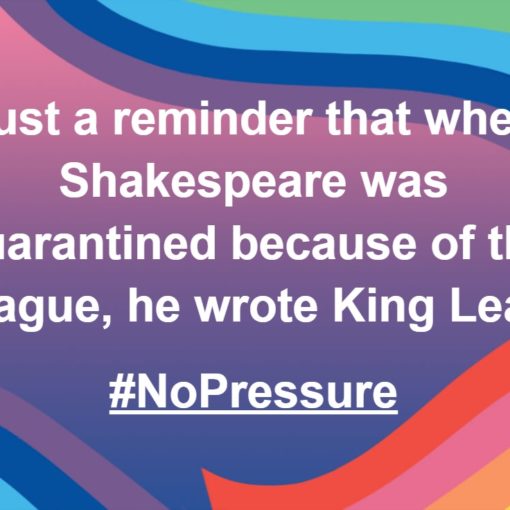 When I arrived in Montreal for ISPA’s Anthony Field Academy, I didn’t imagine that a couple of days later I would be announcing to a room of fellow delegates that I planned to quit my job when I got back to London. I certainly didn’t expect that announcement to be greeted by a warm and enthusiastic round of applause. Sure enough, after two days back in the office, I handed in my notice and started my journey as a freelancer.
When I arrived in Montreal for ISPA’s Anthony Field Academy, I didn’t imagine that a couple of days later I would be announcing to a room of fellow delegates that I planned to quit my job when I got back to London. I certainly didn’t expect that announcement to be greeted by a warm and enthusiastic round of applause. Sure enough, after two days back in the office, I handed in my notice and started my journey as a freelancer.
I have always been drawn to different art forms and ideas, which made working in any one particular role a little frustrating at times. I would often find myself ‘peering over the fence’ at what other departments were up to, and wishing I could get involved. I have a habit of being very easily enthused by other people’s ideas and wanting to find ways to bring them to fruition, so as a natural facilitator, with a wide range of skills and experience, moving into producing seemed the obvious choice.
It has initially been quite a culture shock adapting to working independently after so long as an ‘employee’. Finding myself in the position of developing my own business, defining my own schedule, and setting my own priorities, has been challenging but exciting. I’ve only been working as an independent producer, fundraiser and arts manager for a matter of months, but the transition has happened quickly and I’m already very busy. I’ve conducted cultural policy research for Goldsmiths College, have a couple of fundraising consultancy opportunities on the go, and have just joined promenade theatre specialists Teatro Vivo as a Producer on their new show Twistov, inspired by Dickens’ Oliver Twist and real-life experiences of migration in the UK in the 21st century.
If you’re considering taking the leap, here are my three top tips:
- Do your maths – How will you pay the bills while you develop an income stream? Do you have any savings you could dip into? What’s your ‘survival’ budget (the bare minimum you need to pay your way, even if it means putting up with living like a student) and your ‘thrival’ budget (how much you need to live comfortably, eat well, and enjoy a few luxuries).
- Invest in yourself – It might seem like a bad time to be spending money on training, but keep learning. The more skilled you are, the more you have to offer potential clients, and the more opportunities you have to pick up varied and interesting work.
- Look after yourself – It might take some time to develop your practice. In the meantime, you’re likely to want to say yes to everything, which means you’re going to be very busy. Even learning to adapt to your own timetable and having to make lots of decisions can be quite mentally taxing. Make time to eat well, exercise, rest, and allow yourself the occasional treat. After all, you won’t be able to work at all if you’re ill.
My absolute top tip would be to keep asking for help from those around you. Make the most of your networks – former managers, colleagues, people you meet at networking events and conferences. It’s a rare person who will turn down the offer of coffee and a chat, and my experience has been that the vast majority of people are incredibly generous with their time and advice. This might seem surprising for a sector where people are so often under-resourced and under pressure; but on the other hand, it feels perfectly natural when so much of what we do as artists, producers, and cultural leaders is founded on collaboration and partnership.
Making the decision to become an independent arts professional has been an incredibly positive move for me, and I’m very excited about the future. It’s not necessarily a career path that suits everyone, but I would urge anyone considering it to give it a try if they can. You certainly won’t get bored!
Article first published on 17 October 2017 as part of ISPA Insider


